Antonio Guterres: I will serve most vulnerable as UN chief
- Published
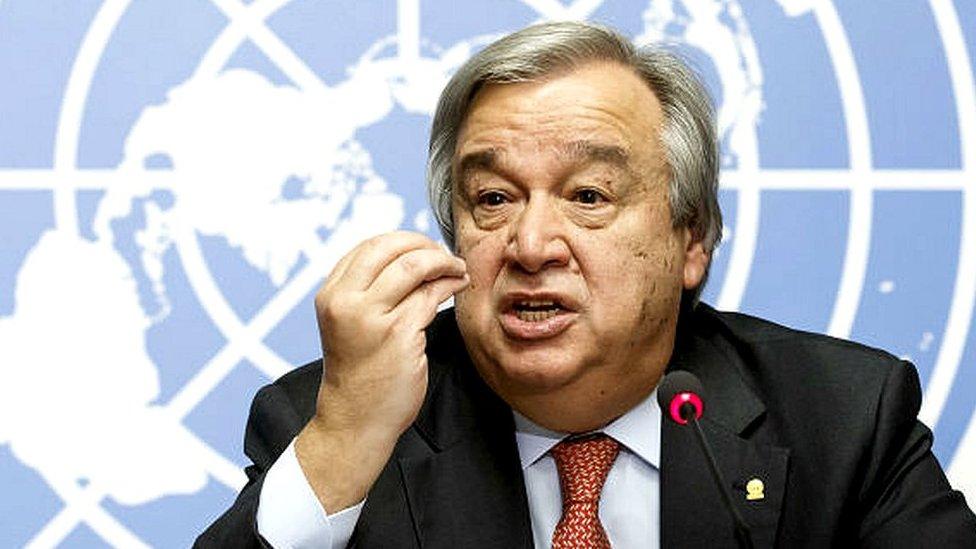
Antonio Guterres will take over from Ban Ki-moon in the new year
Antonio Guterres, the man formally nominated to be the next UN secretary general, says he plans to "serve the most vulnerable".
The former Portuguese prime minister said he felt both "gratitude and humility" by the appointment.
He said he would serve the "victims of conflicts, of terrorism, rights violations, poverty and injustices of this world".
Mr Guterres was unanimously nominated by the UN Security Council on Thursday.
The UN General Assembly is expected to meet next week to approve his five-year appointment.
Meet the UN's next secretary general
Why not a woman UN secretary general?
The 67-year-old, who led the UN refugee agency for 10 years, will take over from Ban Ki-moon early next year.
He paid tribute to Ban Ki-moon and called on UN members states to "strongly support him in his actions and his initiatives" in his final months in office.
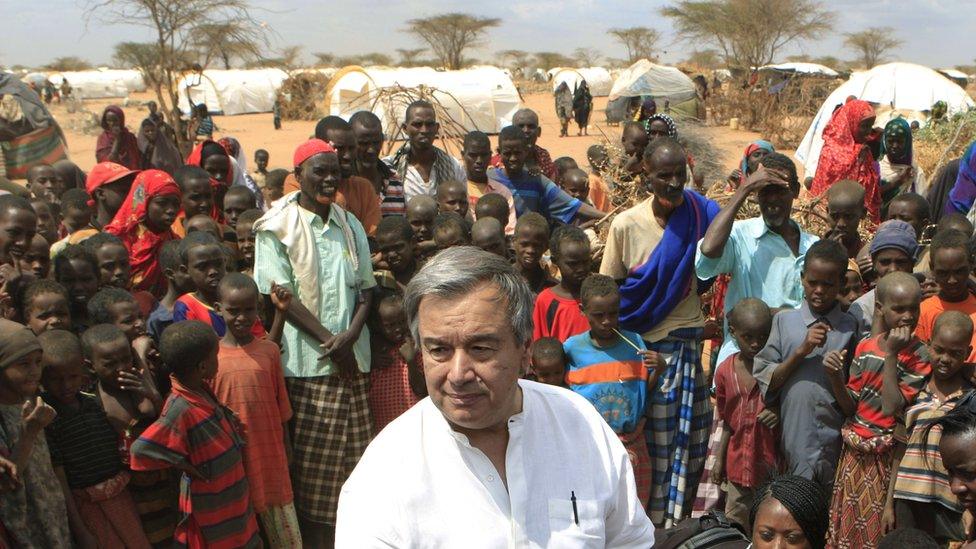
As UN High Commissioner for Refugees, Antonio Guterres has seen humanitarian crises at first hand
"I have two words to describe what I'm feeling now - gratitude and humility," Mr Guterres said in Lisbon.
"Humility [is what I feel] about the huge challenges ahead of us, the terrible complexity of the modern world. But it is also humility that is required to serve the most vulnerable, victims of conflicts, of terrorism, rights violations, poverty and injustices of this world".
'Moral authority'
Speaking earlier, Mr Ban, 72, described Mr Guterres as a "superb choice" to succeed him in the role.
"His experience as Portuguese prime minister, his wide knowledge of world affairs, and his lively intellect will serve him well in leading the United Nations in a crucial period," Mr Ban told reporters during a visit to Rome.
His appointment was also welcomed by The Elders, an independent group of global leaders started by Nelson Mandela but now chaired by former Secretary General Kofi Annan.
"I am delighted by the outcome of the Council's selection process," Mr Annan said. "Antonio Guterres is a highly-qualified candidate who is well-prepared for the many daunting challenges he faces.
"He will need the firm support of the Security Council as well as the wider membership of the United Nations to help him fulfil his mandate in these challenging times."

A huge task ahead - by James Landale, BBC diplomatic correspondent
For all his ability, Mr Guterres has a huge task ahead.
He has to find new ways for the UN to handle international crises after its failure to reduce the fighting in Syria.
He has to reform an unwieldy bureaucracy whose agencies can at times be ineffective and wasteful.
And he has to make a 20th century organisation relevant in a world where many states and armed groups ignore traditional international rules.
The UN secretary general may have 100,000 peacekeepers to deploy but his real influence lies in his moral authority to condemn, and his convening power to make warring parties talk.
Mr Guterres takes up his new role with a fair wind behind him. He'll need every bit of it when the seas get rough.

Mr Guterres's nomination was formally agreed by all 15 council members during a closed-door meeting at the UN.
Afterwards, Russia's UN ambassador, Vitaly Churkin, said Mr Guterres had "great credentials" for the job.
"He is a person who talks to everybody, listens to everybody, speaks his mind, a very outgoing, open person so I think it was a great choice and I'm glad that we rallied around Mr Guterres," he told reporters.
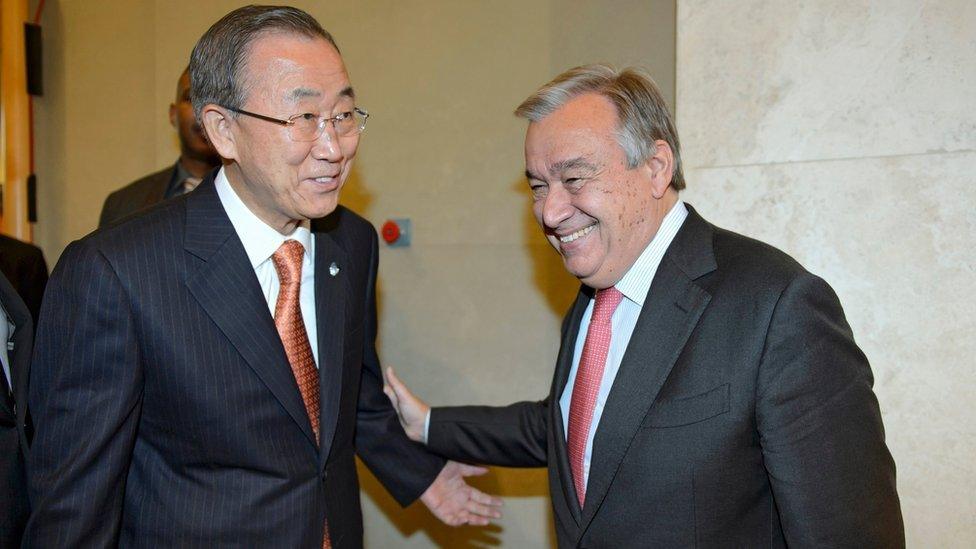
Ban Ki-moon, pictured with Mr Guterres in 2014, said his successor was w "superb choice" for secretary general
British UN ambassador Matthew Rycroft said Mr Guterres had "a vision and a moral authority and integrity that put him at the top of the league table".
Although Mr Guterres's nomination was widely welcomed, there was disappointment among some campaigners who had hoped for the first female UN secretary general, or a candidate from Eastern Europe.
Mr Guterres entered politics in 1976 in Portugal's first democratic election after five decades of dictatorship.
He became leader of the Socialist party in 1992 and was elected prime minister in 1995.
As head of the UN's refugee agency, the UNHCR, from 2005 to 2015, Mr Guterres was at the forefront of some of the world's worst refugee crises, including Syria, Afghanistan, Iraq.
- Published6 October 2016
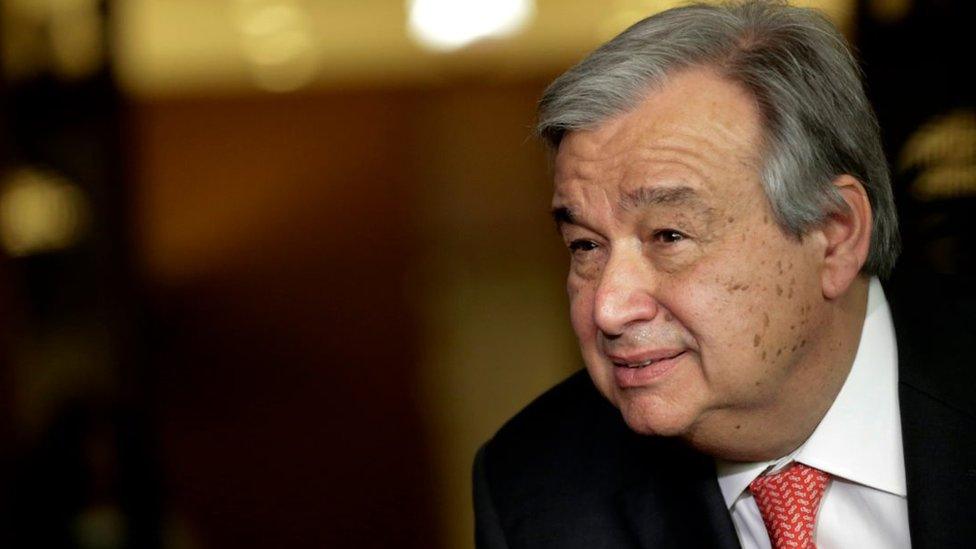
- Published6 October 2016
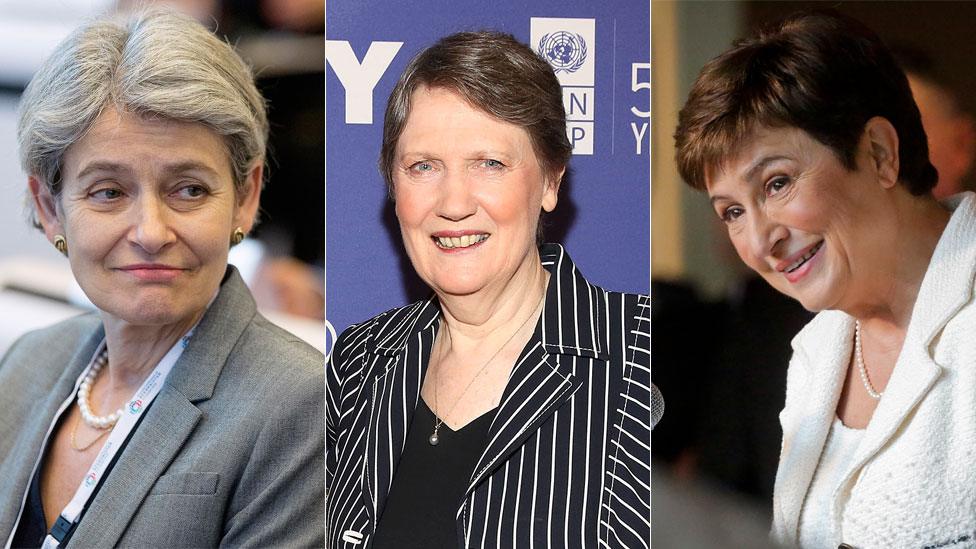
- Published16 September 2016
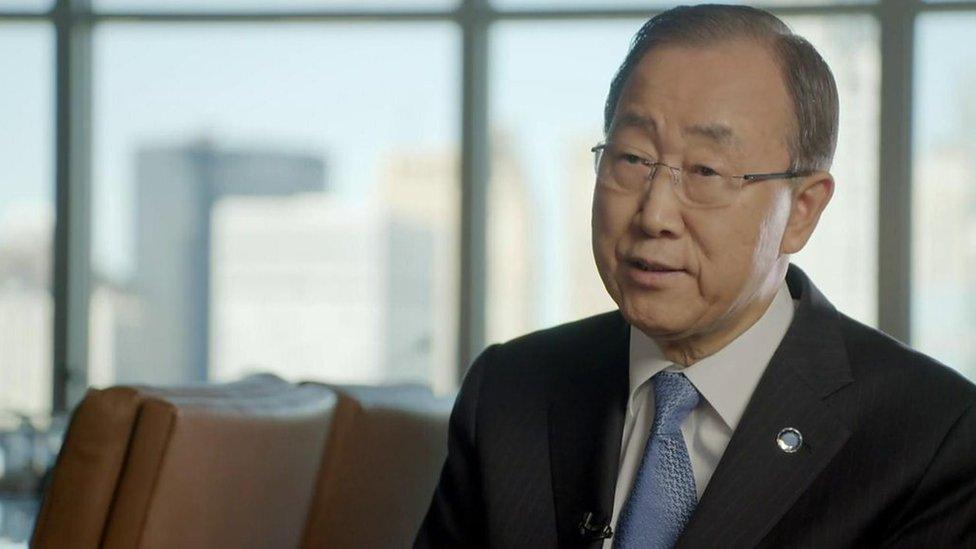
- Published16 August 2016
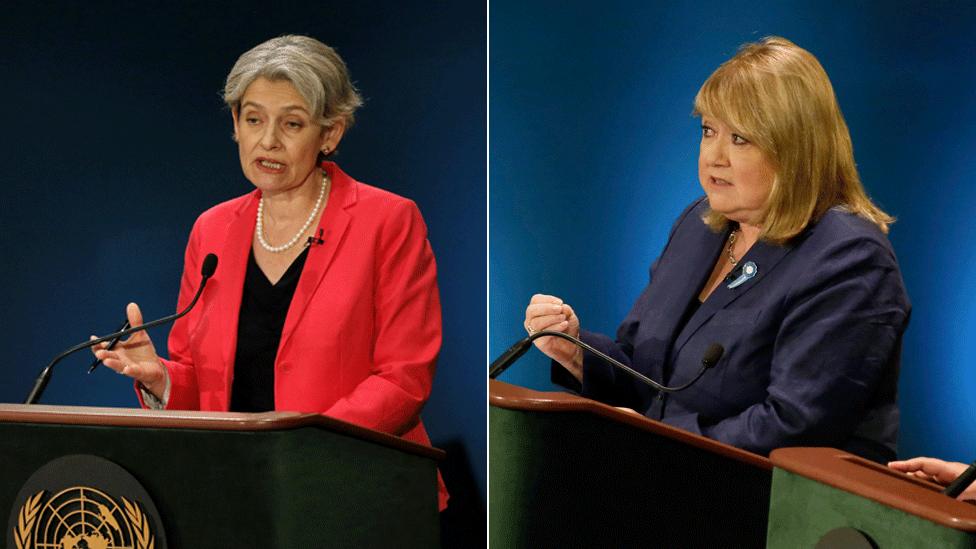
- Published12 April 2016